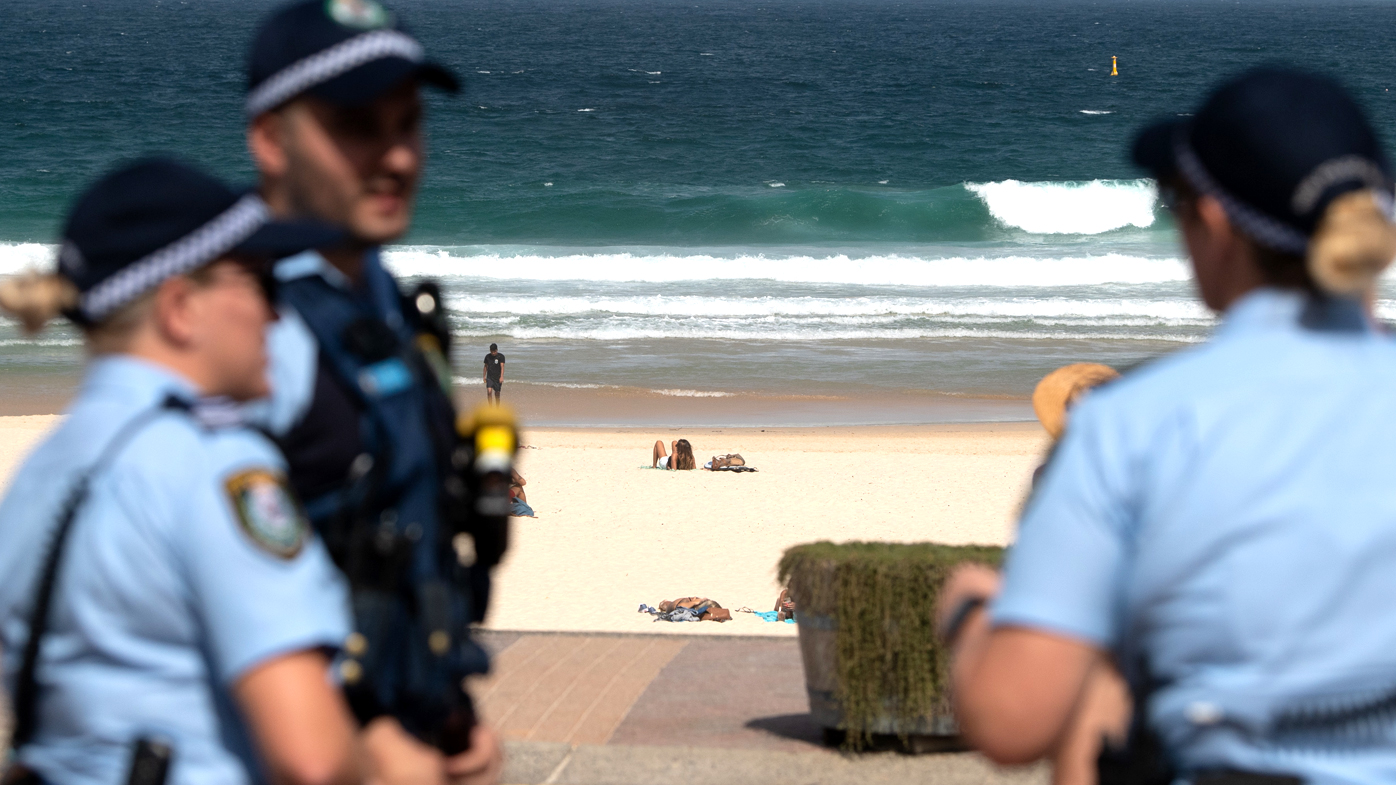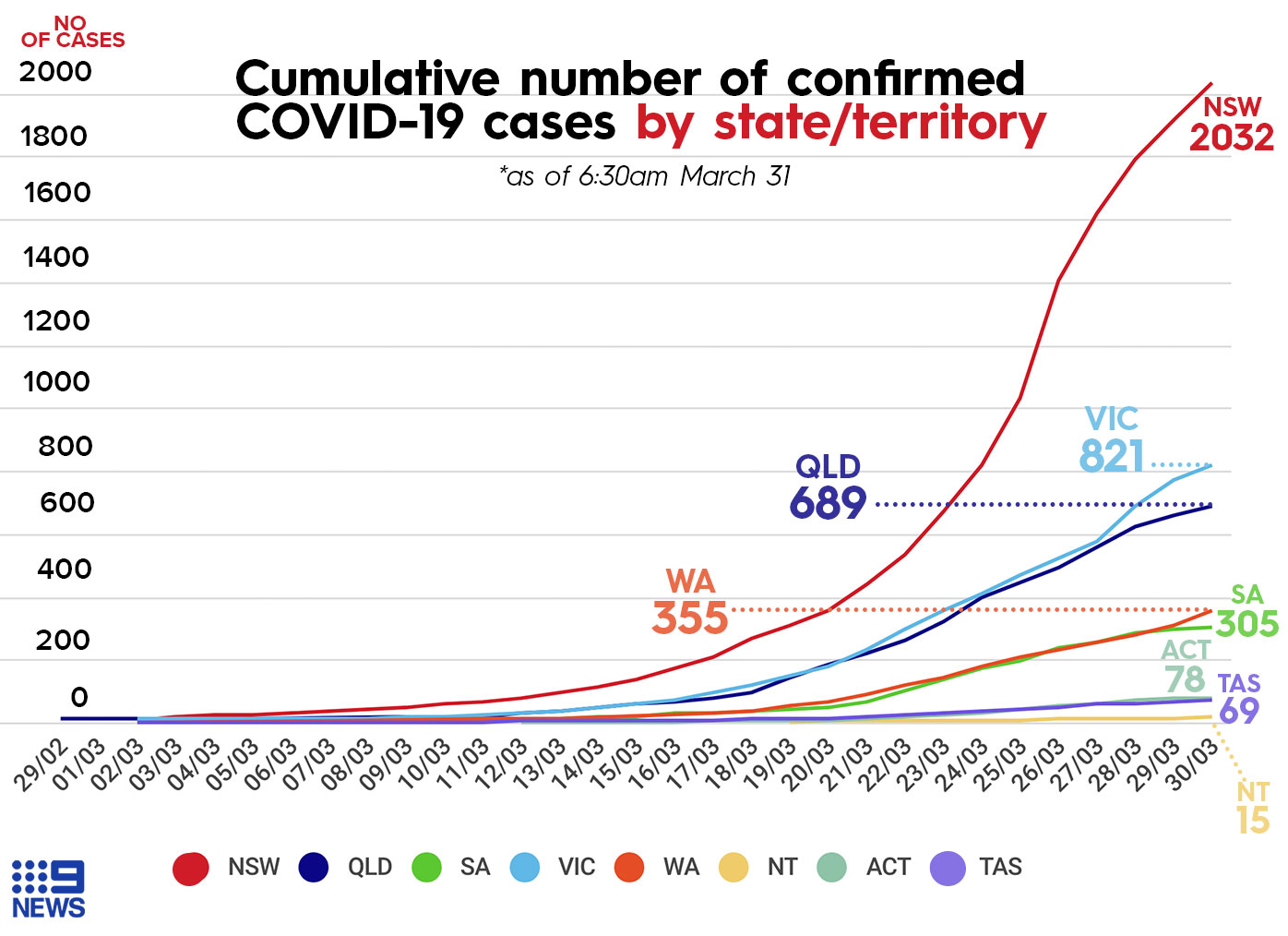Any New South Wales resident who leaves their home "without a reasonable excuse" faces six months in jail and an $11,000 fine.
The harsh new punishments were rolled out by the state government overnight, hours before news of a COVID-19 cluster outbreak in Sydney's east emerged.
According to the emergency ministerial directive, people must not leave their homes unless for exercise, medical or care reasons, travelling for work or education or obtaining goods and services. Sixteen "reasonable excuses" were detailed in the order.

NSW has a blanket ban on gatherings of more than two people in public places, unless those people are members of the same household.
READ MORE: What does the two-person public gathering rule mean for day-to-day life?
The NSW Public Health (COVID-19 Restrictions on Gathering and Movement Order 2020) order does not ban gatherings of more than two people for educational reasons.
NSW reported 114 new COVID-19 cases overnight, bringing the state's total to 2032.
Around 17,000 police are on the ground ready to hand out on the post fines, NSW police commissioner Mick Fuller said.
"The reality is the messaging that the premier and chief health officer that had been given … has not been getting through to some people," Comm. Fuller said.
He said police had found 13 businesses flouting restrictions, and all had been slugged with $5000 fines.
"I hope we don't have to write anymore [fines[ but I fear that there will be individuals that won't get the message. So we will be out there."
Cluster outbreaks thought started and spread by "infected" backpackers have been found in Sydney neighbourhoods Waverley and Bondi.
Testing in those areas is set to increase because of the localised breakouts and a rise in community transmissions.
"New South Wales has the capacity to enforce those extra measures we announced yesterday," Premier Gladys Berejiklian said.
"I really want the community to step up and make sure that you stick to the rules we've set in place.
"The number of cases in New South Wales are increasing."
READ MORE: How social distancing can halt the spread of coronavirus

Despite the heavy focus on the coronavirus pandemic, Comm. Fuller said regular policing was continuing.
He hailed the success of a police operation last night where 200 kilograms of cocaine was seized and five people arrested.
The 16 "reasonable excuses" in the order:
1. Obtaining food or other goods or services for the personal needs of the household or other household purposes (including for pets) and for vulnerable persons
2. Travelling for the purposes of work if the person cannot work from the person's place of residence
3. Travelling for the purposes of attending childcare (including picking up or dropping another person at childcare)
4. Travelling for the purposes of facilitating attendance at a school or other educational institution if the person attending the school or institution cannot learn from the person's place of residence
5. Exercising
6. Obtaining medical care or supplies or health supplies or fulfilling carer's responsibilities
7. Attending a wedding or a funeral in the circumstances referred to in clause 6(2)(d) and (e) or 7(1)(h)
8. Moving to a new place of residence (including a business moving to new premises or between different places of residence of the person or inspecting a potential new place of residence
9. Providing care or assistance (including personal care) to a vulnerable person or providing emergency assistance
10. Donating blood
11. Undertaking any legal obligations
12. Accessing public services (whether provided by Government, a private provider or a non-Government organisation), including: (a) social services, and (b) employment services, and (c) domestic violence services, and (d) mental health services, and (e) services provided to victims (including as victims of crime)
13. For children who do not live in the same household as their parents or siblings or one of their parents or siblings—continuing existing arrangements for access to, and contact between, parents and children or siblings
14. For a person who is a priest, minister of religion or member of a religious order— going to the person's place of worship or providing pastoral care to another person
15. Avoiding injury or illness or to escape a risk of harm
16. For emergencies or compassionate reasons
Source: https://ift.tt/3axaArd
Comments
Post a Comment